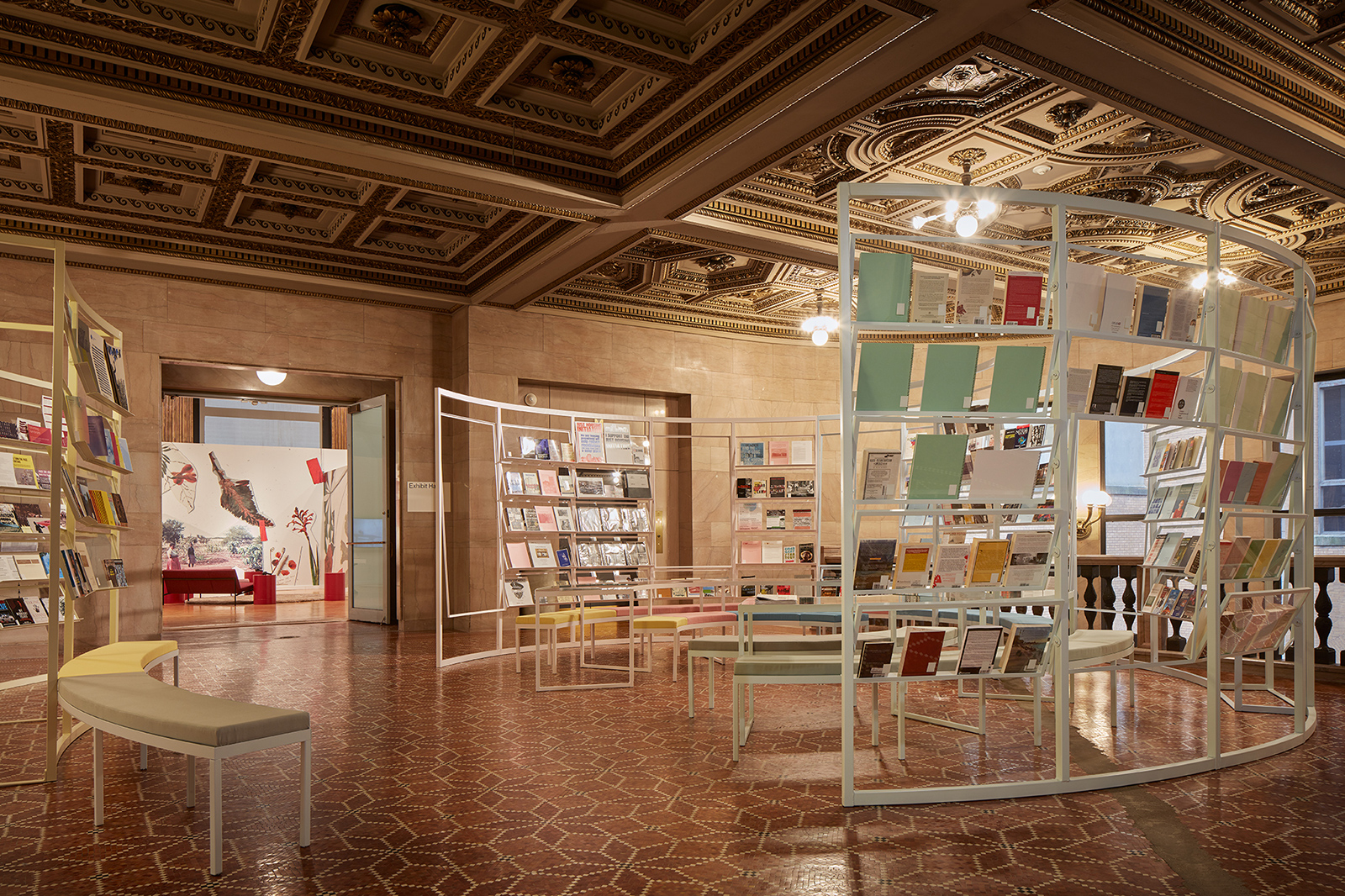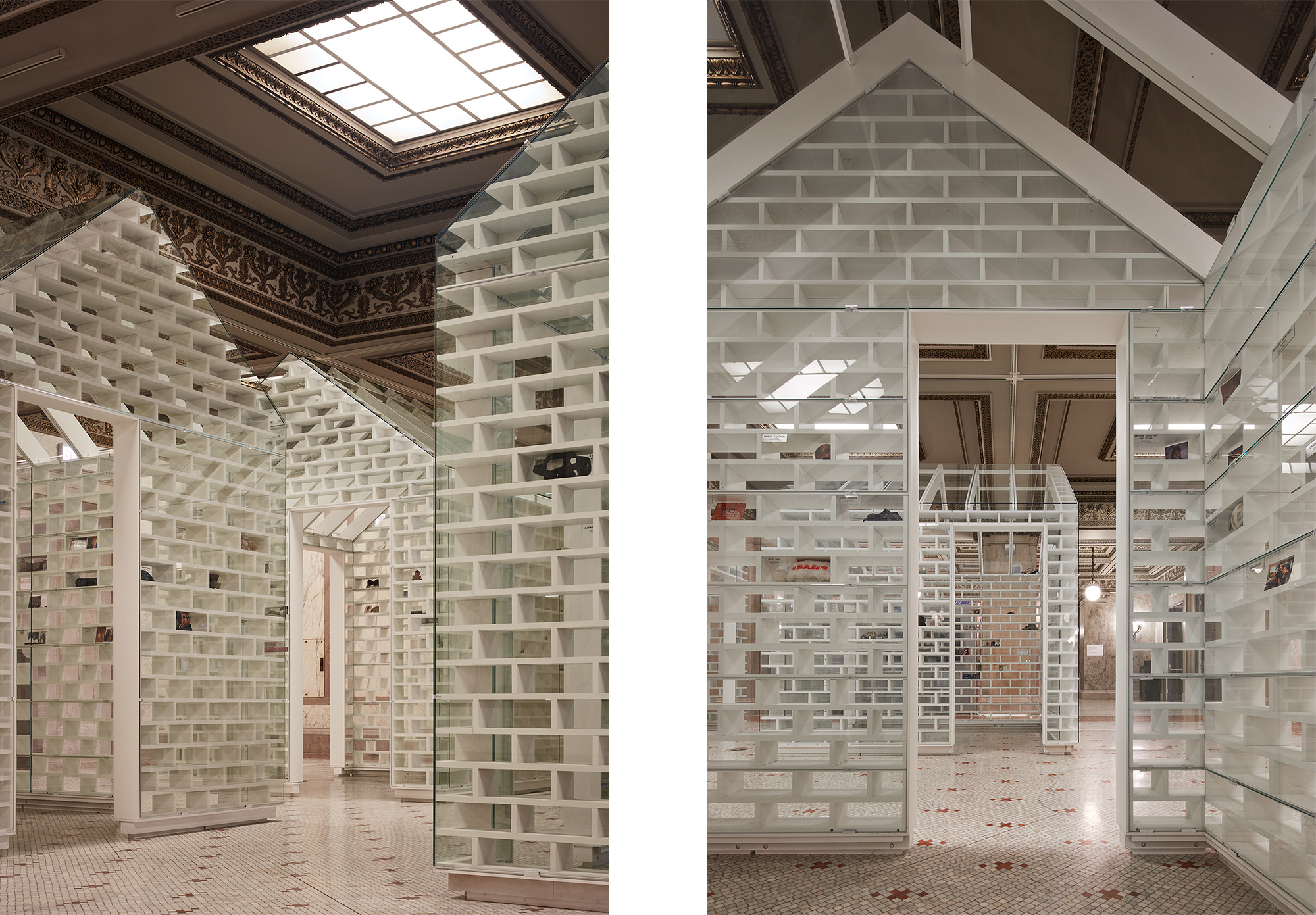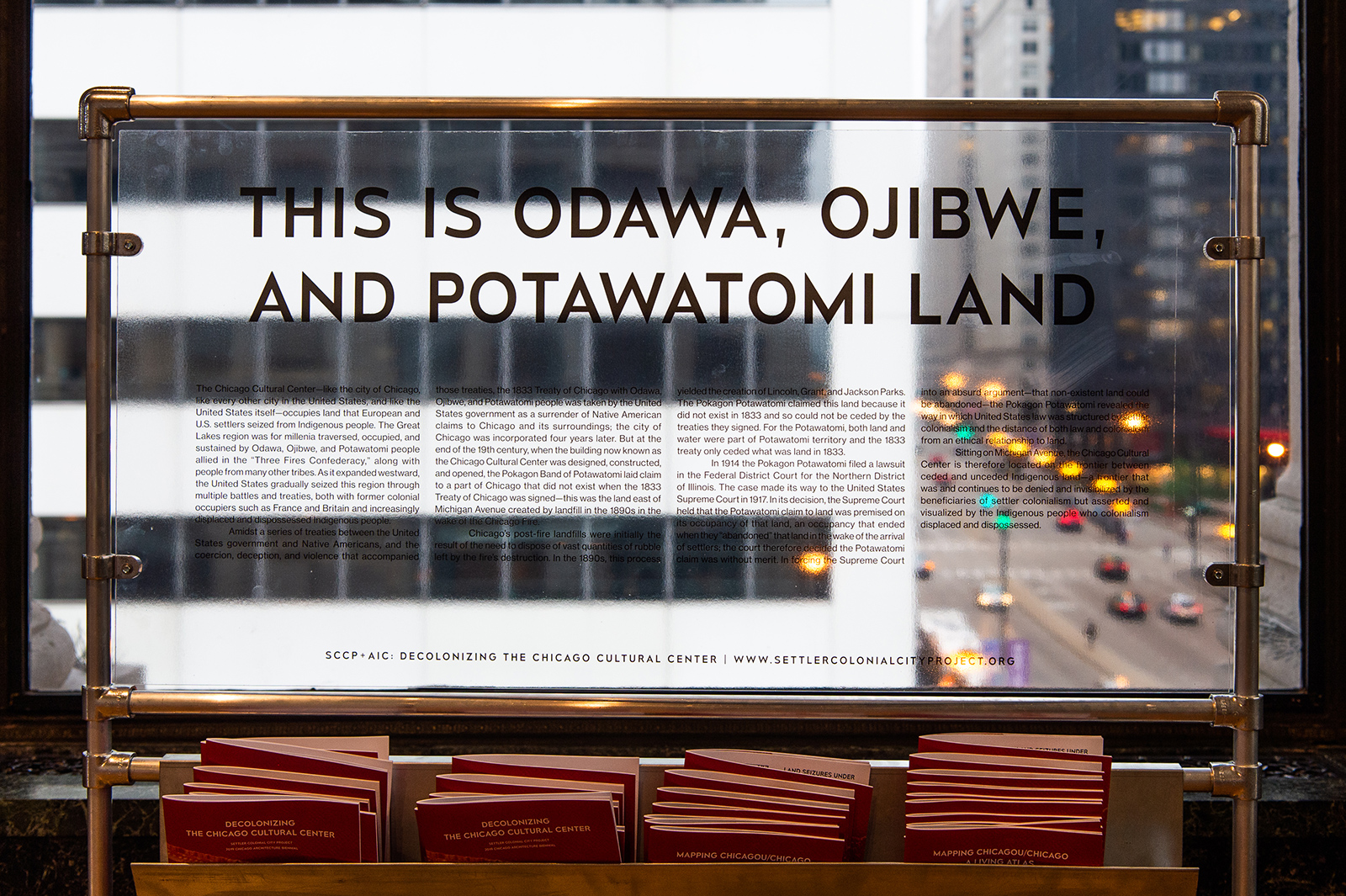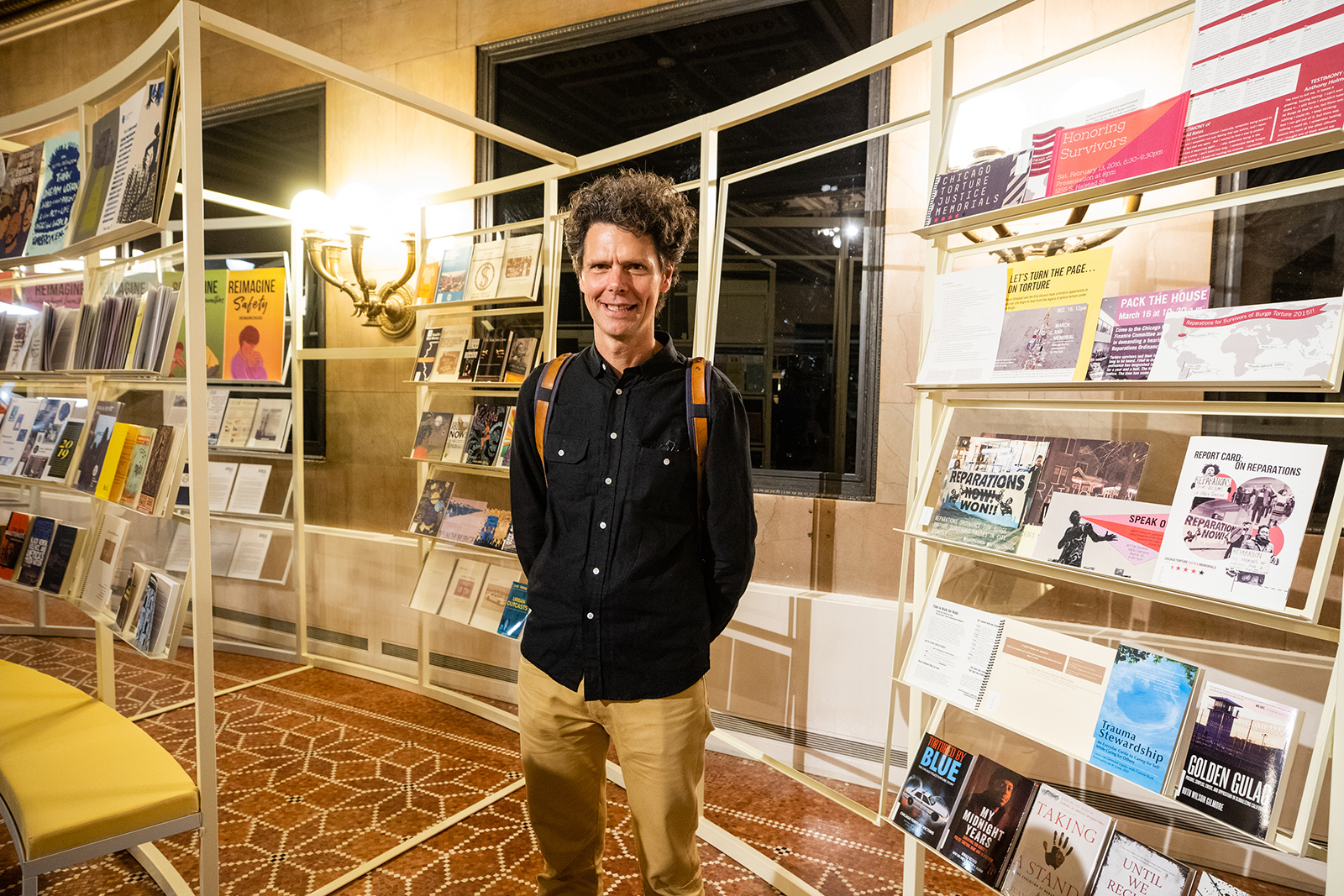Adrian Blackwell’s Anarchitectural Library at the Chicago Architecture Biennial
“… and other such stories”

On the fourth floor of the Chicago Cultural Center, Toronto architect Adrian Blackwell has constructed one of the quieter—though more inspiring—installations at the Chicago Architecture Biennial. His work has taken the form of a circular library made of slender steel rods that houses booklets and xeroxed brochures gathered from 20 locally active community groups. Spend time contemplating these open shelves and you’ll find printed matter produced by diverse organizations, which are building urban farms to help restore blighted neighbourhoods or turning one of the last remaining public housing projects on the South Side into a museum. Still others are protecting Chicago’s beloved rivers from toxic waste or taking on systemic issues of racism, gun violence, and a lack of affordable housing.
This real-time library is a fitting start for the biennial, now in its third edition, which aims to examine the currencies of architecture, though not through the usual “smart city” schemes we keep hearing about. Titled “… and other such stories,” the focus is an intellectualized inquiry into what plagues urbanism now. Co-curators Yesomi Umolu, Sepake Angiama, and Paulo Tavares have commissioned 20 participants from around the globe and posed the question: Can architecture and planning be rearticulated toward the common good?

MASS Design Group Hank Willis Thomas The Gun Violence Memorial Project, 2019. Photo courtesy of Chicago Architecture Biennial / Kendall McCaugherty.
In fact, almost every topic Blackwell’s library of local activists touch on is addressed elsewhere in the exhibition. MASS Design Group from Boston, for instance, collaborated with artist Hank Willis Thomas to construct four pitched-roof structures filled with shelving, where members of the community have been invited to leave behind tokens of loved ones who have died from gun violence. No doubt by the time the biennial closes on January 5, 2020, those empty shelves will have turned into thousands of tiny shrines.
In another part of the exhibition, FICA—a São Paulo collective that shares an interest in finding alternative ways to confront gentrification through social ownership—has launched a crowd-funding model that raises capital to buy and refurbish rental units for low-income families.
Dozens of other meaningful topics are manifested as film-based projects, photographic essays, or simply wall text. One of the most statement-making is by the Settler Colonial City Project and the American Indian Center, which have “decolonized” the very building the biennial is being presented in, with glass placards mounted to the walls of the neoclassical building, which was completed in 1897, identifying the land it sits on as unceded Ojibwe and Potawatomi territory. With each installation, it becomes clear that without reconciling with the past, the future will not hold.

Settler Colonial City Project & American Indian Center Decolonizing the Chicago Cultural Center, 2019. Photo courtesy of Chicago Architecture Biennial / Cory DeWald.
Very much in line with the theme of the exhibition, Blackwell refers to his library as “Anarchitectural”, a compounding of anarchism and architecture. He borrowed the term from a radical New York group of the same name that formed in the 1970s in response to the failures of public housing. The term still seems relevant, maybe even more so now. The climate action taking place all over the world during this Biennale provides a timely reminder that change often happens outside the usual political forces—an idea that the Anarchitectural Library and the grassroots groups who shape it certainly speak to. “My idea, symbolically at least,” says Blackwell of the project, “is to create a sense of conversation between all these groups in a single space, and in a way that isn’t hierarchical.” A radical idea that’s found its moment.
_________
Never miss a story. Sign up for NUVO’s weekly newsletter, here.


